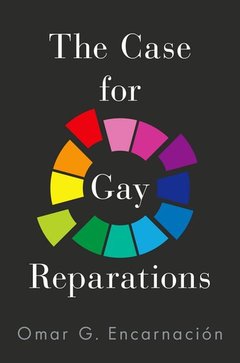The Case for Gay Reparations
Langue : Anglais
Auteur : Encarnación Omar G.

A compelling and timely vision for gay reparations in the United States In the last two decades many nations have adopted "gay reparations," or policies intended to make amends for a history of discrimination, stigmatization, and violence on the basis of sexual orientation and gender identity. Far from being a homogenous or uniform phenomenon, gay reparations encompass a small constellation of approaches including a formal apology to the LGBT community for past wrongdoing, financial compensation for victims of anti-LGBT laws and actions, and the erection of monuments to the memory of those who suffered because of structural homophobia. The United States, however, has been reluctant to embrace gay reparations, making the country something of an outlier among Western democracies. Beyond making the case for gay reparations in the United States, this book explores a wide range of questions provoked by the rise of the gay reparations movement. Among these questions, three stand out for what they reveal about the puzzling and complex nature of this new front in the struggle for LGBT equality. Why, after centuries of attempts to marginalize, dehumanize, and even eradicate LGBT people, are governments coming around to confront this dark and painful historical legacy? How do we make sense of the diversity of gay reparations being implemented by governments around the world? And, finally, what would an American policy of gay reparations look like? Omar G. Encarnación draws upon the rich history of reparations to confront the legacies of genocide, slavery, and political repression and argue that gay reparations are a moral obligation intended to restore dignity to those whose human rights have been violated because of their sexual orientation and gender identity. Reparations are also necessary to close painful chapters of anti-LGBT discrimination and violence and to remind future generations of past struggles for LGBT equality. To this end, he traces America's dark and painful LGBT history--from colonial-era laws criminalizing homosexual conduct, to a postwar ban on homosexuals working in the federal bureaucracy, to the government's support of the junk-science underpinning the practice of "gay conversion" therapy promoted by the Christian Right. The book also examines how other Western democracies notorious for their repression of homosexuals--specifically Spain, Britain, and Germany--have implemented gay reparations. These foreign experiences reveal potential pathways for gay reparations in the United States. More importantly, they show that while there is no universal approach to gay reparations it is never too late for countries to seek to right past wrongs.
Omar G. Encarnación is Professor of Political Studies at Bard College, where he teaches comparative politics and Latin American and Iberian studies. He is the author of Out in the Periphery: Latin America's Gay Rights Revolution and Democracy without Justice in Spain: The Politics of Forgetting, and has written for The New York Times, The New York Review of Books, The Nation, Foreign Policy, and Foreign Affairs. He is the recipient of awards and fellowships from the Fulbright Program, the Ford Foundation, and the National Research Council, among others.
Date de parution : 10-2021
Ouvrage de 256 p.
14.6x11.7 cm
Thèmes de The Case for Gay Reparations :
© 2024 LAVOISIER S.A.S.



